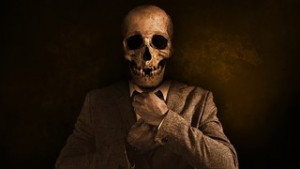
They tell us that the gunmen and terrorists who shoot down numbers of innocent people are calm and methodical as they answer some urge in themselves to be barbaric and violent. Some assume that this calm is a sign of rationality and planning. But it is more likely an aspect of the insanity, the loss of human feeling for others, that produces a state of stupor.
I began my book Care of the Soul with this thought: “The great malady of the twentieth century, implicated in all of our troubles and affecting us individually and socially, is ‘loss of soul.’” The methodical vacant presence of the ravaging gunman reveals the empty shell where soul should be, giving life a heart and a sense of connection.
But why is that some people lose all signs of soul and let their frustrations and rage turn against their fellow humans. After all, we are all frustrated and angry at times. Why do terrorists not feel empathy for human suffering and seem to enjoy inciting fear and inflicting pain?
You can see the blank face and open stare on any street today. We can all sometimes fall into a zombie complex and become the living dead. “Hello,” we say, “is anybody home?” In some ways, the odd calm of the shooter is an extreme version of the numbing effect of a soulless society. There are many ways to understand terrorism, many layers and facets, and one of them is a general loss of heart and soul in ordinary life.
I am most concerned about ways the developing culture makes us zombies. They herd us on and off airplanes and try to convince us that we are brains on legs with no meaningful interior life and therefore no true individuality. The psychology pressed upon us by the media is a mechanical one wanting us to believe that we are computers with flesh, hard-wired to be the persons we are. They see illnesses as being purely physical and therefore can be treated with surgeries and chemicals alone. There is no soul involved, no interiority, no individuality, no human dignity, no deep personhood.
Following ancient teachings, I think we are born with our souls complete but yet to unfold. We have inherent meaning and purpose that is unique and individual. That is part of what soul means. We are also capable of love and friendship and sensitivity to humanity. We can feel empathy and have an urge to care for the other.
But these inherent impulses need education. We have to cultivate them and discover their implications and how to bring them into real life. Some things have to be taught. Yet all the years we spend in school do little, usually, to bring out those deep sensitivities. Instead, today we think we should educate by incorporating young persons into our zombie ideals and into a world that measures its progress by the machines it invents rather than the quality of human life. We don’t learn how to deal with conflict or express our fears and our anger constructively. We don’t become acquainted with the other and temper our xenophobia.
You’d think it would be easy to understand that as a human community we have to work together or we may destroy ourselves and our global habitat through violence of one kind or another. But that large vision also comes into being through an education of the heart.
One sign of the failure of a communal sense is the unequal distribution of wealth, the one-percent versus the rest of humanity. Why don’t we appreciate how deep is the fear, the loss of dignity and the unfulfilled desire for an amazing life that the majority of people feel. It’s no mystery that some, less together emotionally and perhaps more abused from infancy, cannot control their rage and their longings. The more the frustration builds, the less articulate it becomes. All it can do is explode.
But it’s a cool, emotionless explosion, a booming soundless cry, telling us graphically that what is going on here is a loss of soul. We are all in this together, including the insane. None of us, anyway, is fully rational and self-possessed. Every day urges come upon us that are difficult to control and express constructively. Maybe we need a picture of humanity as partly sane and partly mad, so we can have more empathy for the ones who lose it.
We are in dire need of a new vision for bringing up children and educating them. We could aim at creating a world-wide “middle class,” in the sense of the ability to live a happy, anxiety-free and creative life. We have to give up the satisfactions in making people enemies just so we can feel right and smug. We have to turn our capacity for violence into the creative force of our imaginations and positive abilities.
Terrorism, domestic violence and street crime are symptoms of a soulless world. Our response could move beyond protective and punitive measures to a positive re-evaluation of how we are making society, and we could become serious about dealing with widespread inequalities. We could be serious about raising our children, as teachers and parents, to become real people, capable of intimate love and able to live and work with a deep sense of community.
Admittedly, these are huge and idealistic goals, but they are the only final answers to violence. They are reachable. You just have to start the ball rolling toward a new humanity.
Of course, change in society begins with each one of us. You and I could make a point to give some particular children inspiring attention, engage more with our neighbors, spend time in unfamiliar cultures, get over old patterns of anger and envy and allow our souls to enliven our bodies and give us a presence. A soulful life and personality require attention and practice. Don’t wallow in depression. Give it a place and then get on with life. Don’t surrender to any old job or a flat, colorless way of life. I’m suggesting an end to the zombie life and the recovery of soul.











